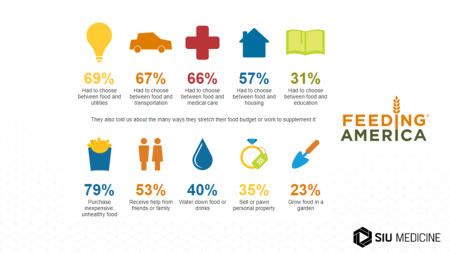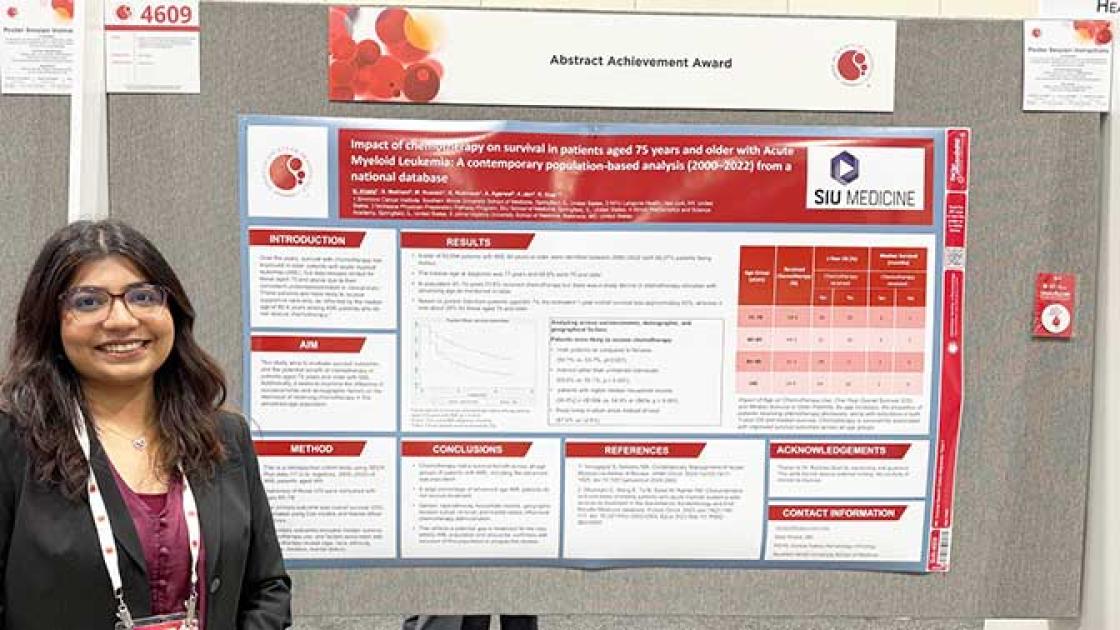
New partnership to combat food insecurities in children
According to the USDA, 10 percent of U.S. households and 12.5 percent of households with children have limited or uncertain access to nutritionally healthy food.
Pediatric cardiologist Enas Shanshen, MD, has led efforts to establish a new partnership at SIU Medicine to help combat food insecurity in children. The Illinois Partnership for Childhood Nutrition Security brings together the holistic expertise of SIU Medicine with the guidance of the American Academy of Pediatrics (AAP) and its Illinois chapter (ICAAP).
The group will provide screening tools to health care providers in the community. Pediatricians will work with their patients, food delivery services and other family-supported partners in the state to give them the resources they need to become food secure.
“One in 7 children experiences food insecurity and hunger. Unless you ask, you won’t be able to tell which child is going to bed hungry, and you won’t be able to connect their families to federal resources like SNAP or WIC, or food pantries that could help them get the nutrition they need,” said Lee Beers, MD, president of the American Academy of Pediatrics (AAP).

Food insecurity can cause underlying health conditions, misdiagnosis, prolonged hospital stays and contribute to greater use of emergency departments and higher health care costs. Screening tools can help overcome the stigma of food insecurity in a number of ways. They can:
- identify a vulnerable target population
- tailor clinical care to patient needs
- help reduce the prevalence of food insecurity and its effects on the community
- potentially reduce health care costs by reducing preventable emergency department and provider visits
During sick and well-child visits, parents and caregivers will be screened for hunger vital signs. Doctors will provide families in need with a brochure that has several resources to access adequate food. The plan addresses food insecurity within the culture of the institution, providing healthy food options to help eliminate food racism. An inequality in access to healthy food is a major contributor to the disproportionately high rates of diet-related disease found in populations of Blacks, Indigenous, Latinos, Asians and Pacific Islanders.
Providers will also be educated on screenings for food insecurity and to connect families experiencing food insecurity to local community resources. These are including and not limited to local food pantries, farmers’ markets, and federal nutrition programs like WIC and SNAP.
Shanshen initiated the partnership after noticing many otherwise healthy children were ending up in the SIU cardiology clinic due to food insecurity.
“I found myself looking for local resources for healthy food on a budget. My patient families were benefiting from it, and I thought why don’t we broaden it into the wider community and help more of the people in Springfield,” she said.
To learn more about the partnership click here.



